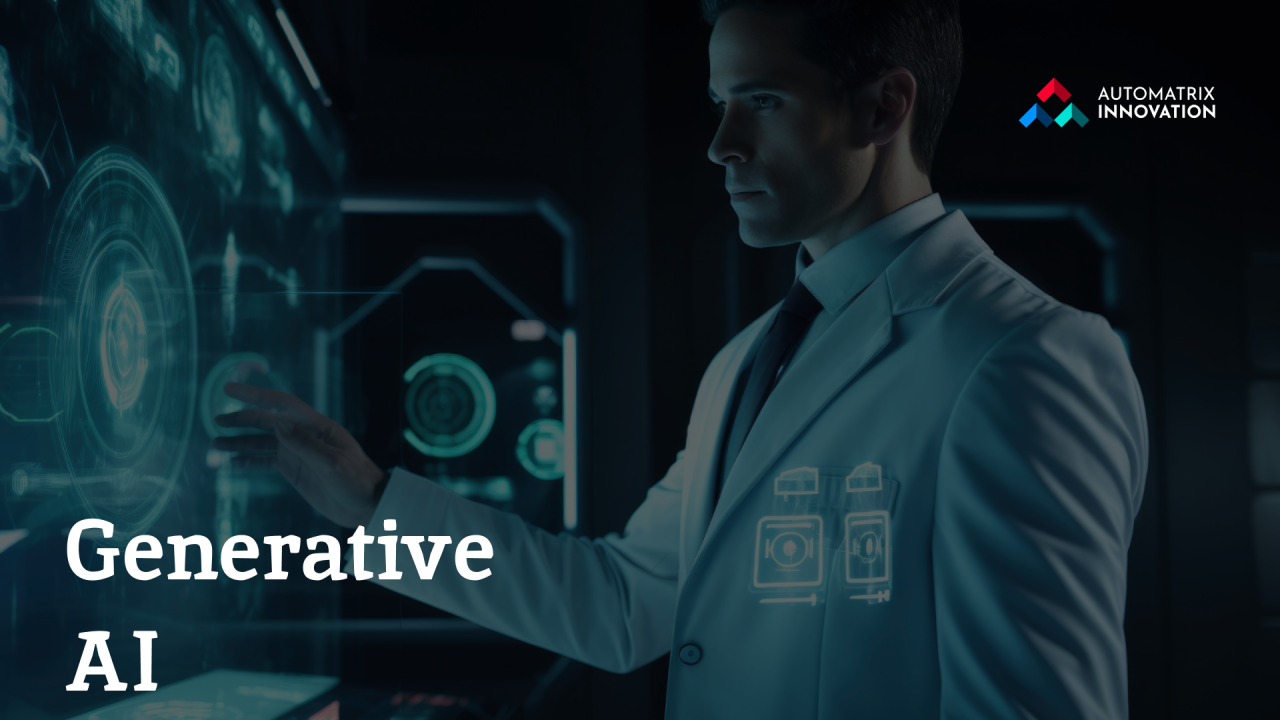
Revolutionizing Healthcare with the Transformative Power of Generative AI
Generative AI is rapidly changing in various industries, and healthcare is leading the charge in reaping its benefits. This technology enhances patient care, revolutionizes diagnosis, and streamlines medical processes, promising a bright future for Healthcare. Let’s explore how Generative AI is transforming healthcare and challenges that accompany its rise.
What is Generative AI:
Generative AI goes beyond simply analyzing data; it has the capability to create new data and insights. Think of an AI system that can generate fresh scenarios, produce creative content, and streamline processes. In the healthcare realm, this means significant advancements in several areas:
Improving Workflow
One of the most immediate impacts of generative AI is its capacity to automate everyday administrative tasks. A 2022 study revealed that healthcare professionals spend nearly 30% of their time on administrative duties. By automating activities like appointment scheduling, data entry, and billing, generative AI enables healthcare workers to devote more time to patient care. This shift not only fosters deeper connections between providers and patients but also enhances the overall patient experience.
Enhancing Radiological Imaging
In the field of radiology, generative AI tools are refining image analysis. Advanced algorithms enhance the quality of medical imaging, which can lead to earlier and more accurate diagnoses. Research shows that AI can boost the detection rate of specific cancers by as much as 20%, as it is capable of identifying subtle details that might go unnoticed by human radiologists. This advancement benefits patients and optimizes the use of healthcare resources.
Advancing Preventive Healthcare
Generative AI is also making significant contributions to preventive healthcare. AI models can sift through massive datasets to predict potential health problems before they escalate. For instance, AI can highlight risk factors that may lead to chronic illnesses like diabetes or hypertension. By implementing early intervention strategies based on these insights, healthcare providers can significantly reduce the chances of severe health complications and minimize overall healthcare expenses. Estimates suggest that early intervention can slash healthcare costs by up to 50% for certain conditions.
Revolutionizing Clinical Trials
Clinical trials are vital for discovering new treatments, and generative AI is innovating this process through the use of digital twins—simulated models of patient data that reflect real-world conditions. This technology allows researchers to design and conduct trials more flexibly and efficiently, resulting in quicker insights into the effectiveness and safety of new therapies.
Overcoming Challenges
Despite its potential, generative AI in healthcare faces significant challenges:
Wrapping Up
The prospects for generative AI in healthcare are very promising. As technology evolves, we can anticipate more innovations that will enhance patient care, streamline medical processes, and foster new research opportunities. By addressing current challenges and leveraging the transformative power of generative AI, we can work towards a more efficient, effective, and equitable healthcare system.
Passionate Web and Mobile App Developer | IT Operations Head | Tech Enthusiast Driving Innovation | Salesforce Expert | CEO at Design Plunge
1 个月Insightful. It's exciting to think about how technology will transform patient care.